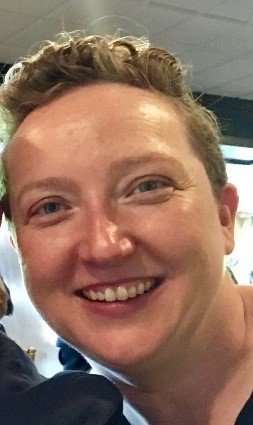
This is Part Two of a three-part series written by REACH’s Associate Executive Director Deborah Heimel. Deb has worked at REACH for 14 years and manages the internal operations of the organization including human resource management responsibilities such as hiring and onboarding new staff members, administering paid time off benefits and medical insurance benefits, and managing payroll. In spring of 2019, Deb led a process with board and staff members to discuss and propose changes to our compensation and paid time off benefits. This is how we got there and how it went.
For the introduction to this work, read Part One of the series. Part Two focuses on compensation.
In spring of 2019, 14 members of REACH’s staff and board engaged in an intentional and lengthy process to discuss compensation and benefits.
In planning for this work, I was overwhelmed by the amount of things to discuss. Each meeting was going to be two hours. I’ve spent longer than that just discussing the pros and cons of combining sick and vacation time! That was just one of what felt like 150 questions to discuss. As much as I want to talk about all of it, this was a time for me to listen. For all of us to listen. How do you create a truly safe space for 14 people to listen to each other?
It was my job as the facilitator to do just that. To push the work forward while checking to see if we needed to slow down. To follow up 1-1 after a meeting with someone or to prepare someone ahead of a meeting. To provide information such as what is required by law and what is part of organizational culture. To ensure everyone was heard and the numerous perspectives were respected.
I was really anxious.
I knew that we wanted this work to be grounded in our core values, so I kept coming back to them. And they helped me breathe.
After ground rules were agreed upon, we started by talking about compensation. If you’re going to have a hard conversation, why not just dive in?
We looked at the data that was available for human services compensation in Massachusetts. After collecting and publishing a tool called Valuing Our Nonprofit Workforce based on compensation data from across the state, TSNE MissionWorks published a report in 2018 entitled Wage Equity Matters. The report found that without adequate compensation, a nonprofit career path isn’t sustainable for most people. This doesn’t only affect people at an individual level. The Wage Equity Matters report states “if the nonprofit sector continues to do more with less, especially less money for our workers, we end up perpetuating poverty and inequality in our society.”

In order to change this, we have to talk about it. But talking about compensation is hard. For many of us, it’s embarrassing and awkward. We have to acknowledge that most staff members are able to work in this field because they have partners who make more money, or they work another job (or two or three), or they live with family, or they receive state or federal assistance, or they are deeply in debt.
I know my own financial situation and, through my role at REACH, I have learned the stories of many other staff members. Yes, some people leave because of burnout. And many people leave because they can’t deal with the stress of their finances.
We recognize that changing the culture of undervaluing human services work and increasing nonprofit compensation will take time but in order to do so, we need to speak out and push for wage equity.
The first step was to articulate a compensation philosophy.
Through back and forth among the committee and emotionally charged and vulnerable conversations – How do you safely discuss how compensation represents value in a room with your colleagues, supervisor and board of directors? What does it mean to be competitive in a field that perpetuates poverty? – we wrote a compensation philosophy.

After the compensation philosophy, we used the data available and drafted salary ranges for each position. We made adjustments so that ranges were similar across positions and across required skill sets regardless of department. The ranges are wider than what we have previously offered, with the goal of intentionally creating room for professional growth and financial reward. Then, based on these new ranges and each employee’s experience and work at REACH, we identified ideal new salaries for all fulltime staff members. In order to increase current salaries to proposed salaries, we are looking at an annual budget increase of around $250,000.
This is a significant goal. Centering equity and supporting sustainability is a significant goal. And we are committed to making our vision a reality. If you are interested in talking with us about how you can help, please contact me at deb@reachma.org or our Executive Director Laura Van Zandt at laura@reachma.org.
The Heller consulting team also identified paid time off benefits as an area of significant interest and value to staff. The board and staff committee continued their conversations to address these areas. Read on in Part Three for more about this work.





